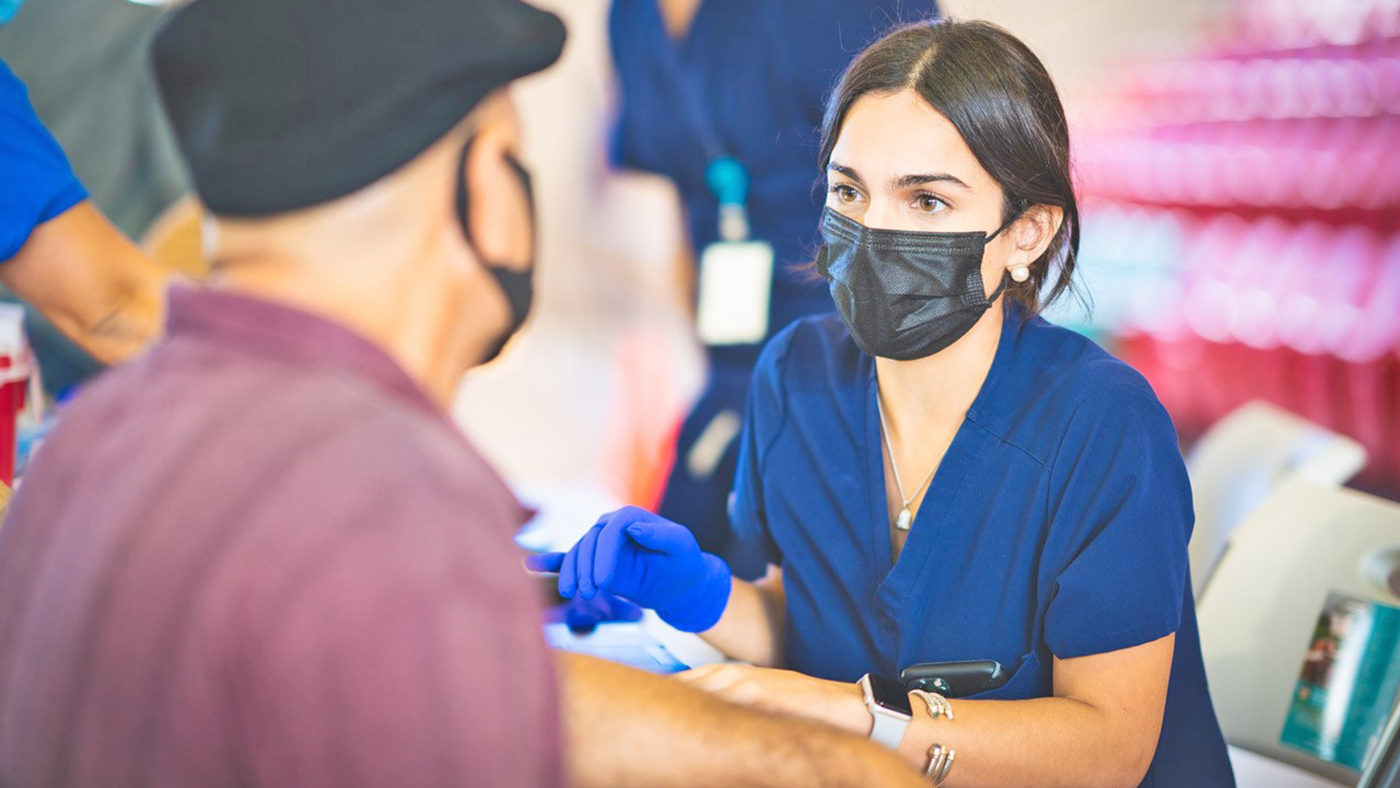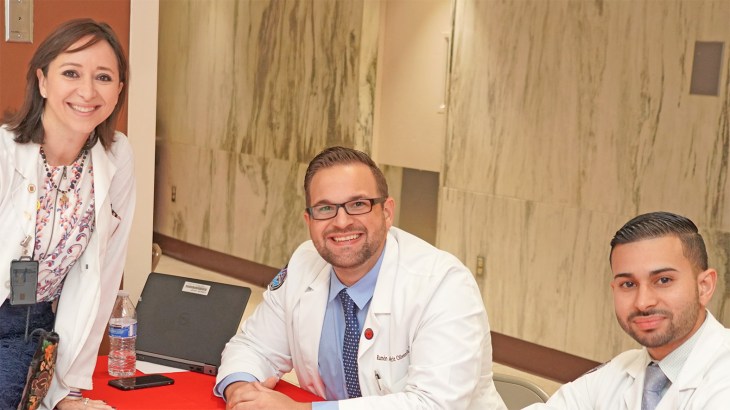In recent years, the Caribbean Island of Puerto Rico has faced multiple crises—including Hurricanes Maria and Irma—that devasted the infrastructure and threatened the island’s public health system.
Puerto Rico has also faced another crisis: seeing 50% of its physicians leave the island since 2009, and the reality of too few training opportunities for new physicians.
Caribbean VA realized this challenge several years ago, establishing VA-sponsored accredited graduate medical education (GME) residency programs in several clinical specialties to train new physicians to care for Veterans and the community.
While most GME residencies in the U.S. are sponsored by academic affiliates, Caribbean VA didn’t have that option when it first began its GME programs in 1946. So, it did it on its own, establishing the curriculum, gaining accreditation through the American Colleges of Graduate Medical Education, and training physicians in such areas as critical care medicine, sleep medicine and spinal cord rehabilitation, which is specialty training not found elsewhere in the Caribbean.
“We don’t have enough physicians, and there are more students who graduate from medical school than there are positions to receive or train them,” said Dr. Maricarmen Cruz-Jimenez, associate chief of staff for Education. “If we didn’t have VA programs to accept students here, they would have to go somewhere else.”
Nearly half of the island’s medical students leave because of insufficient residency positions. The residency positions at Caribbean VA are not a fix to the larger challenges faced by the medical community in Puerto Rico, but they are an opportunity for medical students to train in their community by providing care to Veterans.
Because many physicians work where they trained, these VA-sponsored residencies are a critical part of creating a more robust health care workforce in Puerto Rico. Nearly 40% of Caribbean VA’s clinician educators are alumni of the Caribbean VA’s residency programs, now teaching the next generation of physicians in the programs where they trained.
Health professions trainees (HPTs) enrolled in residency programs spend a core portion of their training on rotations in VA. They are fully immersed in VA’s interprofessional model of providing care to meet the complex needs of Veterans. Backed by VA’s breadth of resources, VA offers a unique training experience where residents learn to work in teams to address the whole health needs of their patients.
Trainees learn so many lessons from Veterans’ history
“Caring for a single Veteran, health professions trainees learn about mental health conditions, toxic exposure, the difficulties of re-engaging with family and so many lessons from history,” said Cruz-Jimenez.
While maintaining accreditation is complex, the commitment to training the next generation of health care professionals is worth it. In addition to sponsoring more than 10 residency programs, Caribbean VA provides 40 additional programs in partnership with academic affiliates to train nearly 800 HPTs annually. Overall, health professions education (HPE) programs account for nearly a quarter of all physician residency positions and HPE training programs across numerous clinical disciplines in Puerto Rico.
“We are not only forming and providing amazing physicians for VA, but we are producing unique physicians for the community. We have the honor of caring for and learning from a very special population. Coming here is a whole school just learning from the Veteran population,” said Cruz-Jimenez.
VA is a national leader in health professions education, setting the standard for physicians and health professions training in more than 60 professions with more than 1,400 educational institutions affiliates to train future health professionals.
These academic affiliations, some of which began more than 75 years ago, are coordinated by VA’s Office of Academic Affiliations (OAA). Find out more about VA’s academic mission by watching this video and visiting the Office of Academic Affiliations website.
Topics in this story
Link Disclaimer
This page includes links to other websites outside our control and jurisdiction. VA is not responsible for the privacy practices or the content of non-VA Web sites. We encourage you to review the privacy policy or terms and conditions of those sites to fully understand what information is collected and how it is used.
More Stories
Pacific Islands VA has opened a new urgent care clinic inside the Daniel K. Akaka VA Clinic.
From one battle to the next, including four types of cancers, Eliot Winokur’s resilience remains unshaken.
As severe weather threatened Mississippi, local news warned of a dangerous outbreak of tornadoes. A VA nurse stepped up.







This is an amazing story of VA training the next generation of doctors in a locale where the veterans and local population earnestly need it. And structurally, there aren’t many other private GME options to train enough doctors. Appreciate the work going on in Puerto Rico!